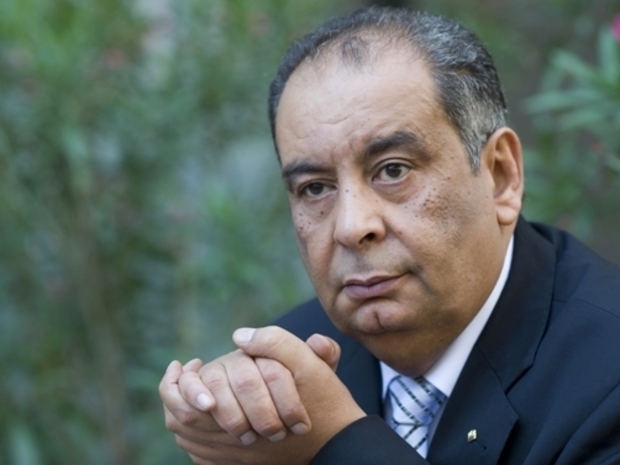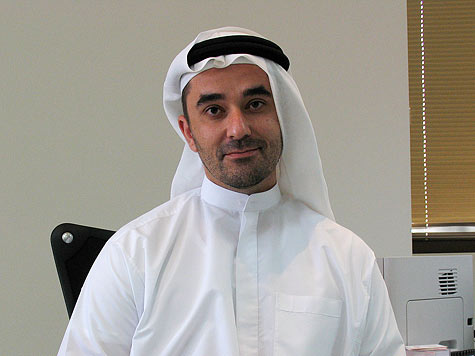When the shortlist for the International Prize For Arabic Fiction (IPAF) was announced yesterday, it was tempting to suggest the literary scene in the Arab world is not only healthy, but beginning to make global inroads. After all, the six-strong list features authors from four different countries, the majority of whom have had their previous work translated into English and other European languages. Of course, the benchmark of a good Arabic novel shouldn’t solely be its availability to anglophone readers, but another awards ceremony this week, backed by Abu Dhabi’s famous Ghobash family, celebrates the growing bibliography of intriguing translations.
The Saif Ghobash Banipal Prize for Arabic Literary Translation, sponsored by Saif’s son Omar in memory of his late father, is now in its eighth year. And proof that the quality has raised year-on-year is perhaps evident in the fact the judges couldn’t choose between William Hutchins’s work on Wajdi Al-Ahdal’s A Land Without Jasmine and Jonathan Wright’s translation of Azazeel by Youssef Ziedan (pictured). So, for the first time, the prize will be shared.
“I would certainly say there are now more people confident about translating Arab literature,” says Hutchins. He should know: he’s been translating Arab fiction since 1983 and is perhaps best known for his work on Naguib Mahfouz’s famous Cairo Trilogy. “Such an increase is great, because there are many good authors writing in Arabic and prizes such as IPAF and Banipal means more are getting through. But I have to say, it’s still difficult to convince a major publisher to put money behind a translation.”
Before A Land Without Jasmine was taken up by the small independent publisher Garnet, Hutchins had fallen in love with it after just two chapters – which initially Banipal had commissioned him to translate for its magazine. It’s no surprise he did – the tale of a girl who goes missing in Sanaa told from a multitude of different perspectives is immediately engrossing and compelling.
“Al-Ahdal’s writing is so elegant,” he agrees. “He creates little scenes of Sanaa life – a garden, a university snack bar – which are so vivid. It’s a thrilling mystery, but then he mixes a lot of folklore in towards the end, too. And it was published in Arabic before the Arab Spring, so it’s also a flat-out indictment of patriarchal sexism and the previous government. The policemen are trying to do a good job but there’s no way they can because of the power structures. I was really taken with it.”
Youssef Ziedan’s Azazeel, a historical epic set in fifth-century Egypt detailing the life of a doctor-monk, couldn’t be more different. Wright’s translation was picked up by the publishing giant Atlantic, which then bizarrely did not make the book available for three years, despite it winning the 2009 IPAF. Much of the traction that Ziedan’s win might have gained was lost.
“It was their prerogative,” he says. “What I find more interesting is that some people have said that prizes have distorted the way Arab authors write, in the sense that they want to win the prize, be translated into English and therefore immediately have this magically ‘large’ audience. But to me, there is no formula. It’s not easy to discern what might work for an English-speaking audience and certainly I can’t think of anyone who’s actually succeeded by doing that.”
Still, for both Hutchins and Wright, there are plenty of exciting books to work on. Even if the publishing climate is difficult, there’s always the thrill of discovering a new voice and bringing it to the world.
“Look, Arab literature is a mixed bag, like literature is in any language,” says Wright. “That’s inevitable. But then, there are so many more people trying to write and get published in the Arab world, which can only be a good thing.”
Asked what inspires him to continue sponsoring the prize, Omar Ghobash replies: “The SGB Prize demonstrates that we do not need tremendous amounts of money to make a point. The prize makes the point: it draws attention to the existence of Arabic literature.”
‘Translation is sacred to me’
Omar Ghobash on how a search for the “Arab canon” inspired the prize.
“I was brought up on Russian literature because my mother is Russian, so I was very interested in what I could find in terms of novels on my Arab side. I was searching for the Arab canon. We in the Arab world seemed to have a different approach to our literature – at least in terms of novels. There has been a much greater focus on poetry. In terms of novels and short stories, the situation is much less organised.
“So the SGB Prize can do a number of things. First, it is a demonstration of one family taking a decisive step to support a prize that rewards excellence. This in itself should encourage others to look for ways in which they can also support similar initiatives revolving around our cultural life. It also provides a stimulus for translators to work harder at their chosen profession. It demonstrates that we do not need tremendous amounts of money to make a point. The prize makes the point: it draws attention to the existence of Arabic literature, it brings attention to Arab writers.
“Today I spent about five hours interpreting between different people and languages. The act of translation is a sacred one for me, in that it brings different worlds together in mutual understanding.”
• The Saif Ghobash Banipal Prize for Arabic Literary Translation is awarded tomorrow at Europe House, London. Visit www.banipaltrust.org.uk



